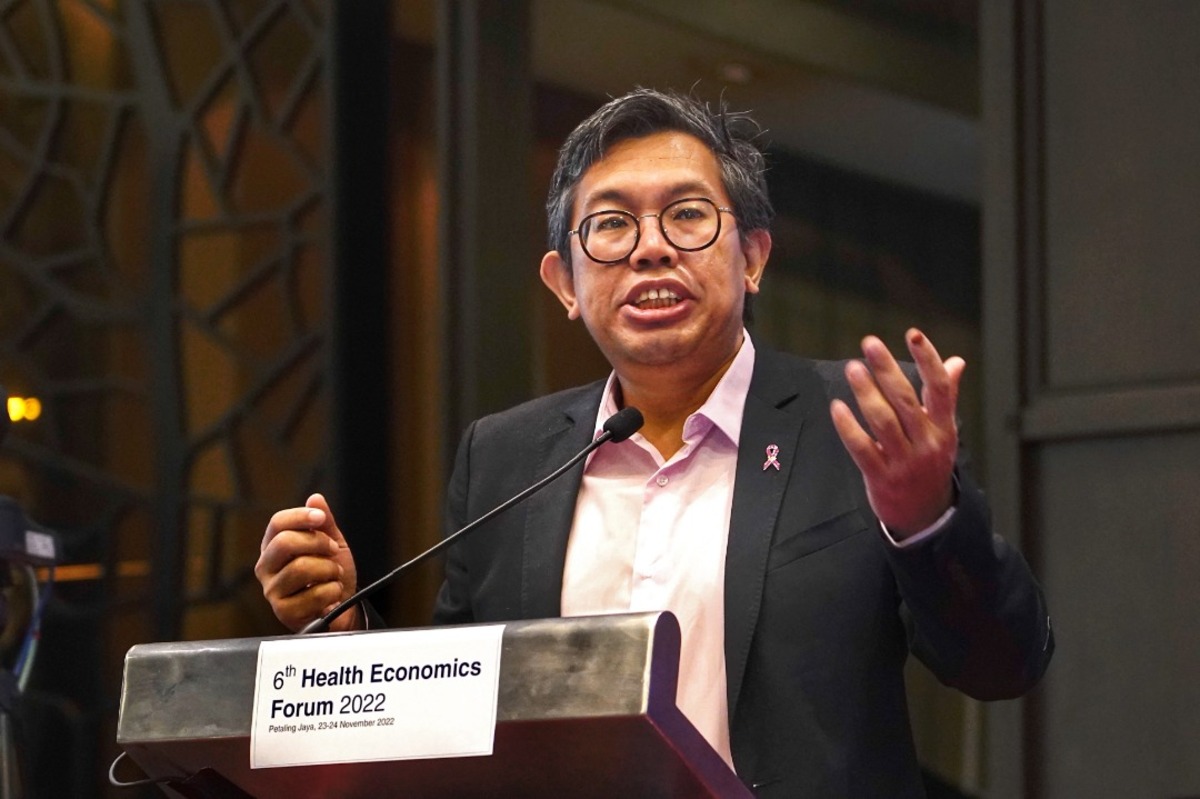KUALA LUMPUR, Jan 25 – The Galen Centre for Health and Social Policy today suggested that the government drop proposed tobacco prohibitions for future generations to ensure passage of the tobacco bill in Parliament.
Galen Centre chief executive Azrul Mohd Khalib stressed the urgency of passing the Control of Tobacco Product and Smoking Bill 2022 to regulate the marketing and sale of electronic cigarettes and vape products, highlighting a “massive gap” in existing legislation on these products.
“Sales of cheap vape disposables containing high concentrations of liquid nicotine currently cannot be prevented, restricted or banned. Anyone, including children, can buy them,” Azrul said in a statement.
Vape products containing nicotine are no longer illegal in Malaysia after health authorities reclassified nicotine under the Poisons Act 1952 last October to allow over-the-counter sale of smoking cessation products, namely the nicotine patch and gum.
“This is why the Control of Tobacco Product and Smoking Bill proposed to regulate the vape industry in the same way that the tobacco industry is currently regulated, especially regarding advertisements, marketing, promotion, and sponsorships. It will help rein in and regulate vape which has gone out of control in this country,” Azrul said.
“To ensure passage of this bill by this current government, I am proposing that the provisions related to the generational end game (GEG) in the current version of the Bill be dropped.
“Those provisions, which were found to be contentious and unpalatable by Members of the previous Parliament, will have to be a fight for another day. However, we urgently need the rest of the provisions contained in the Bill, including regulating vape.”
Then-Prime Minister Ismail Sabri Yaakob’s government failed to re-table the revised tobacco bill last October for a vote in the Dewan Rakyat before the 14th Parliament was dissolved, amid widespread opposition from the public and MPs towards the proposed generational tobacco ban, or GEG, in the bill.
The original version of the bill tabled in Parliament sought to prohibit the sale to and possession, purchase, and use of tobacco and vape products by anyone born from January 1, 2007.
A parliamentary special select committee chaired by then-Health Minister Khairy Jamaluddin, which reviewed the tobacco bill, had proposed dropping prohibitions on personal possession of tobacco or vape products by those born from 2007.
Some MPs who were particularly vocal against the tobacco GEG are now in Prime Minister Anwar Ibrahim’s Cabinet, such as Bintulu MP Tiong King Sing, who is the tourism, arts and culture minister.
“Today’s statement by the Ministry of Health on the marketing and sale of electronic cigarettes (e-cigarettes) and vape products deliberately aimed at children and young people demonstrates the futility and helplessness of health authorities in protecting such vulnerable individuals, when laws such as the Control of Tobacco Product and Smoking Bill remain unpassed by Parliament,” Azrul said.
Health Minister Dr Zaliha Mustafa issued a statement earlier today to express concern about the sale and advertising of vape products to children, but did not specify if she would table the tobacco bill for a vote in the upcoming Dewan Rakyat meeting next month.
Azrul noted that 4.9 per cent of the Malaysian population currently vape, with the numbers of e-cigarette users rising daily. Malaysia’s vaping industry is estimated at RM2.3 billion, with Malaysia being the largest vaping market in Southeast Asia.
“As a consequence of the lack of legislation or regulation, nothing is able to prevent, restrict or prohibit the manufacturing, marketing and selling of vape products that not only are deliberately intended for young consumers, but also contain high nicotine content.”
He pointed out that the maximum nicotine strength for e-cigarettes permitted in the United Kingdom, Europe, and Indonesia is only 2 per cent, but vape liquids containing up to 5 per cent nicotine are widely available in Malaysia for RM10 to RM20.
“Such high concentrations, even in small amounts, are toxic for children,” Azrul said.
“Vape and e-cigarettes are part of the problem of nicotine addiction. Vapers find that though they may have stopped smoking cigarettes, their addiction has transferred to e-cigarettes and vape. Some will be dual users, where they smoke both tobacco and e-cigarettes. Children as young as 10 are becoming newly addicted to nicotine,” he added.








